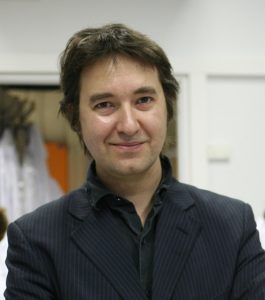
- This event has passed.
SCSB Colloquium Series – Thomas Bourgeron, Ph.D.
September 27, 2017 | 4:00 pm - 5:00 pm
 Wednesday, September 27, 2017
Wednesday, September 27, 2017
Time: 4:00 pm-5:00 pm, followed by reception
Speaker: Thomas Bourgeron, Ph.D.
Affiliation: Professor, University Paris Diderot / Institut Pasteur
Host: Benjamin Neale, MGH, HMS, Broad Institute/MIT
Talk title: Tackling the genetic and synaptic heterogeneity in autism from risk to resilience
Abstract: The genetic architecture of autism is complex made of a combination of common and rare variants. Our previous studies pointed at one biological pathway associated with autism related to the synapse. Among the causative genes, synaptic cell adhesion molecules (neuroligins and neurexins) and scaffolding proteins (SHANK) are crucial for synapse formation/maintenance as well as correct balance between inhibitory and excitatory synaptic currents. These findings significantly advanced our knowledge on the possible causes of autism. However, they also (unintentionally) contributed to the emergence of a simplistic conception of autism as a binary trait: mutated vs. non-mutated or affected vs. non-affected. This simplification neglects the large phenotypic heterogeneity of autism, whose genetic architecture – like most complex diseases – cannot be reduced to a single gene. In this presentation, I will discuss our recent results coming from human studies in large populations and genetic isolates as well as mouse studies that shed new light on the inheritance of autism and some of the underlying mechanisms. Finally, I will illustrate how we are currently studying Resilience to understand why some carriers of deleterious mutations seem to be protected (The Resilients) while others are severely affected.
